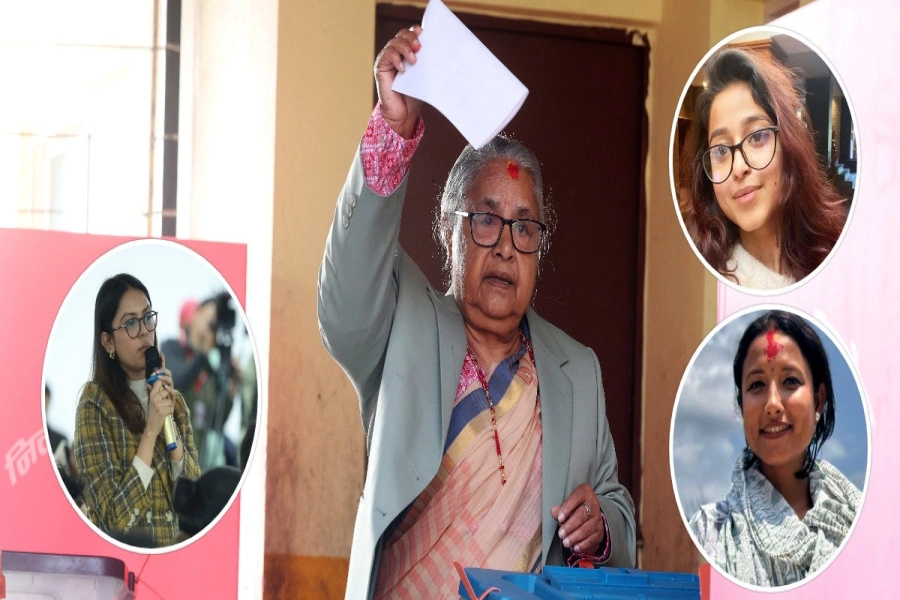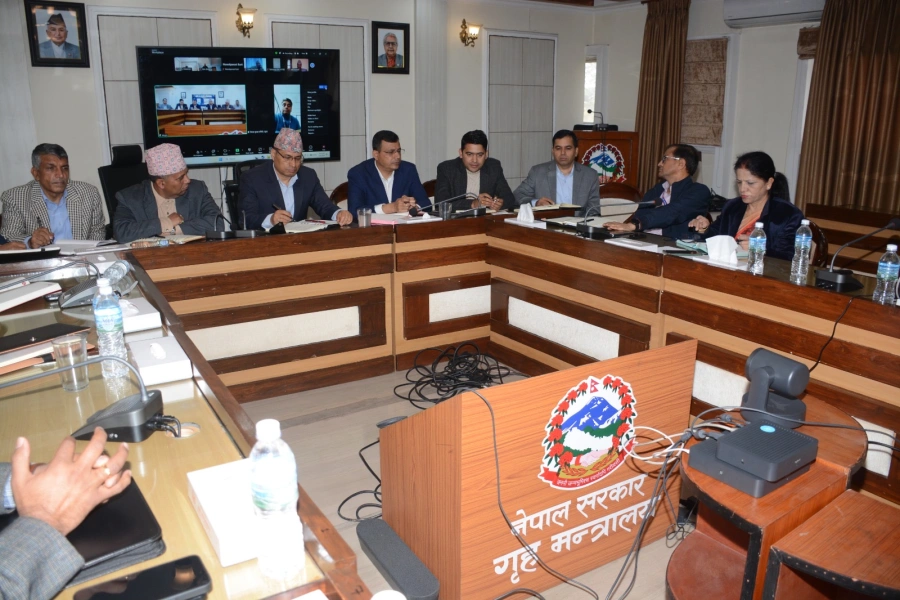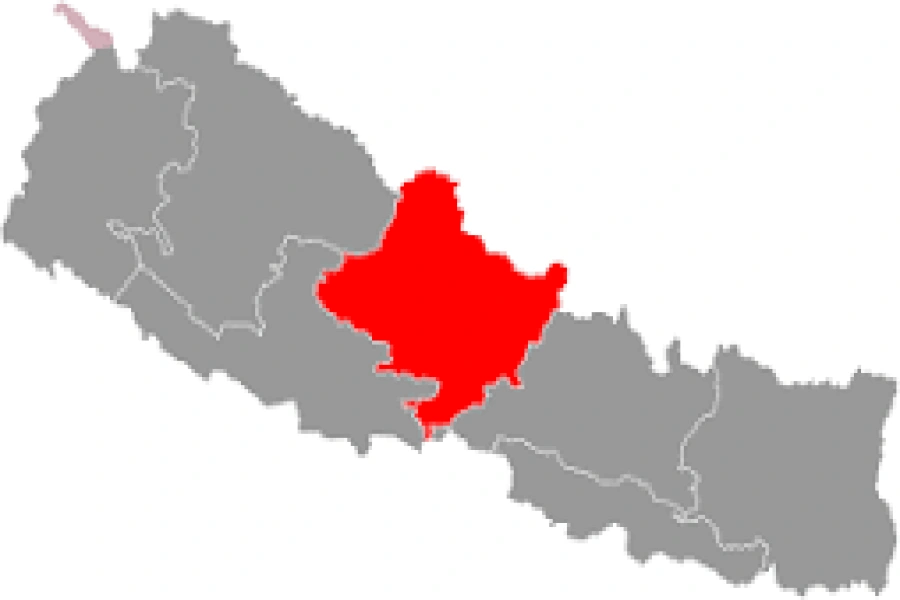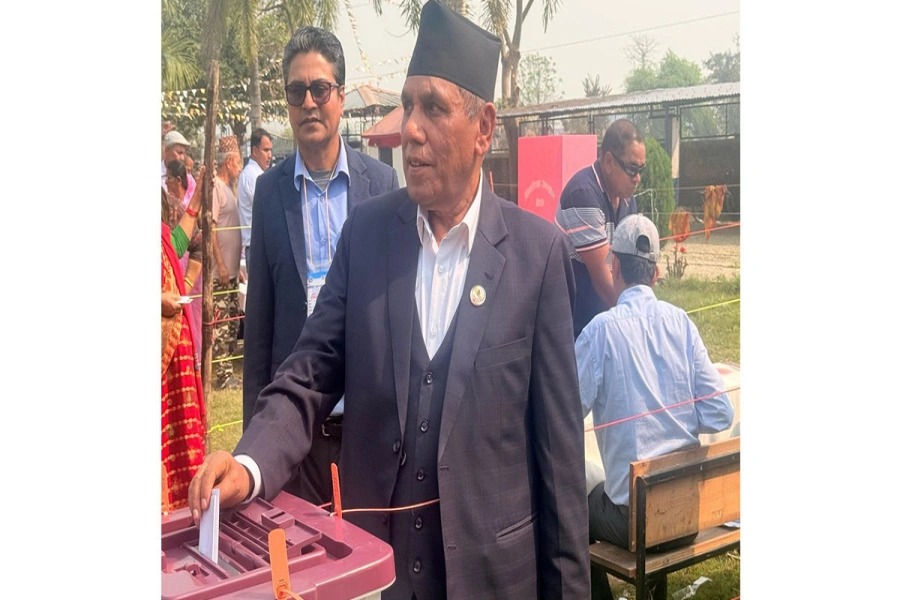KATHMANDU, Jan 25: The name of senior actor/director, Ramesh Budathoki comes in the forefront while taking about the history of Nepali tele-serial because he had introduced the first ever tele-serial in Nepal called ‘Bachna Birseko Chaina’ in 1986 as a director and actor. He has been honored with the Prabal Gorkha Dakshin Bahu in 2004 and other respectable achievements such as Best Actor Award for ‘Udhghatan’ (tele-film) in 2010 by Television Kalakarmi Sang, Best Supporting Actor NFDC National Award by NFDC in 2014, Film Artists’ Association National Award by Film Artists Association (FAAN) in 2014 and Letter of Honor by Nepal Television for First Tele-serial Director in 2015 among others for his over three decades’ contribution in the television industry.
Budathoki is originally from Biratnagar where he grew up watching a lot of movies. The character in the movies would get imprinted on his mind and he’d later enact those characters. “I was inclined to acting since my childhood. In the evenings, after finishing homework, we would gather at one place and imitate different movie characters,” said Budathoki.
However, his official journey in acting began during the gap year after his SLC (now SEE). He had played a small role in a play called ‘Dhrohi’ which was production of a theatre group called Diyalo Pariwar in Biratnagar.
Singapore blade runner

Though he later went on to play lead roles in several plays, Budathoki wasn’t much happy being limited in Biratnagar. As result, he came to Kathmandu to pursue acting as a career. He gave audition for a training organized by Nepal Academy in 1987, and also got selected with the salary of Rs 300 per month.
“Rs 300 was a huge amount at that time. I spent it as living expenses, including college fees, rent, food and also saved Rs 50,” said Budathoki. He likes to call himself an actor more than a director because he is more comfortable while acting. “I started my career as actor so acting is my comfort-zone.
I turned to direction accidently when Nir Shan, then General Manager and Director of NTV, offered me to make a tele-serial for NTV. At that time, I was not familiar with cinematography or filmmaking. But I proved myself as director,” he said.
He has directed ‘Pushpanjali’, ‘Duin Din Ko Jindagani’ and ‘Maan’, among others, along with ‘Kas Lai Aafno Bhannu’, which was his longest serial with 980 episodes. Likewise, he has also directed films such as ‘Mohani’, ‘Joon Tara’, ‘Apsara’, ‘Choro’, ‘Jiddi’. His film ‘Pal’ was awarded the Special Film Award in 2013 by Nepali Film Development Board.
He said the current scenario of Nepali film industry is better because the sector used to be blamed for being much influenced by Indian cinema in the past.
“The standard and quality of Nepali films have also improved as people with professional as well as theoretical knowledge are entering the film industry of late,” he said. As the Chairperson of Film Artists Association of Nepal between 2006 to 2012, he had successfully helped Nepal to become a member of the International Federation of Actors (FIA).
He believes that success is certain if one works hard and with honesty. “I came to Kathmandu from Birtanagar in pursuit of an acting career though my dad was not ok with my decision. At some point when my training was over, I was jobless. But I never gave up. I had to work as salesman to sustain a living while practicing acting in the evenings,” he said.
Budathoki believed there are two kinds of films — good films and successful films. He defined that good movies were the critically acclaimed ones with the ability to change society, while successful films become hit in the box-office and make profit. “All good movies become successful, but a few successful movies are good ones,” he added.






































